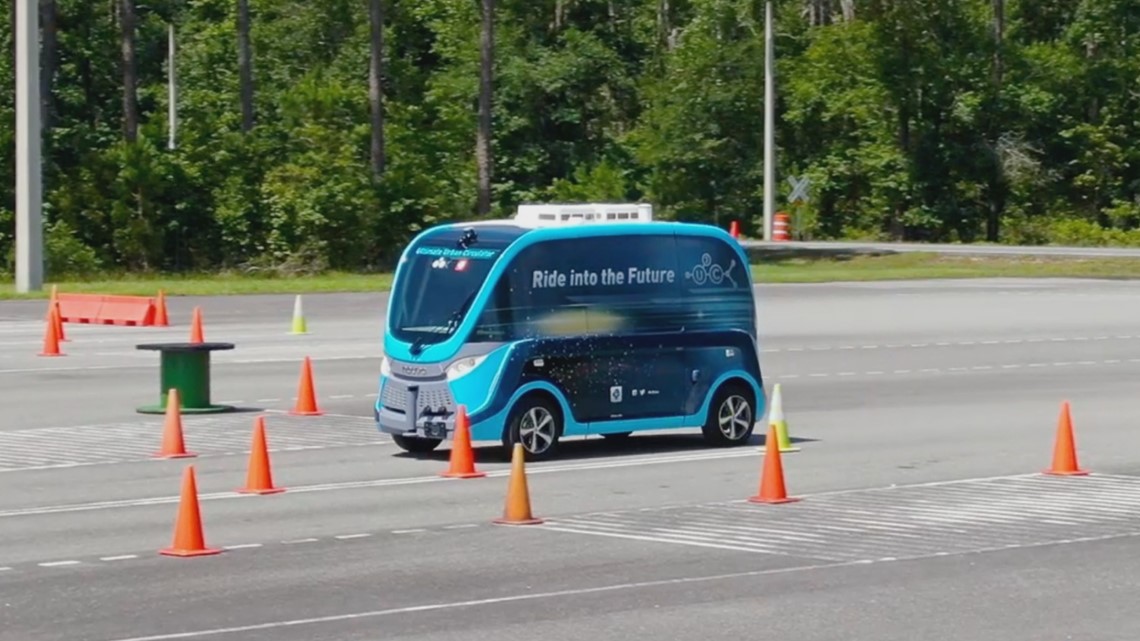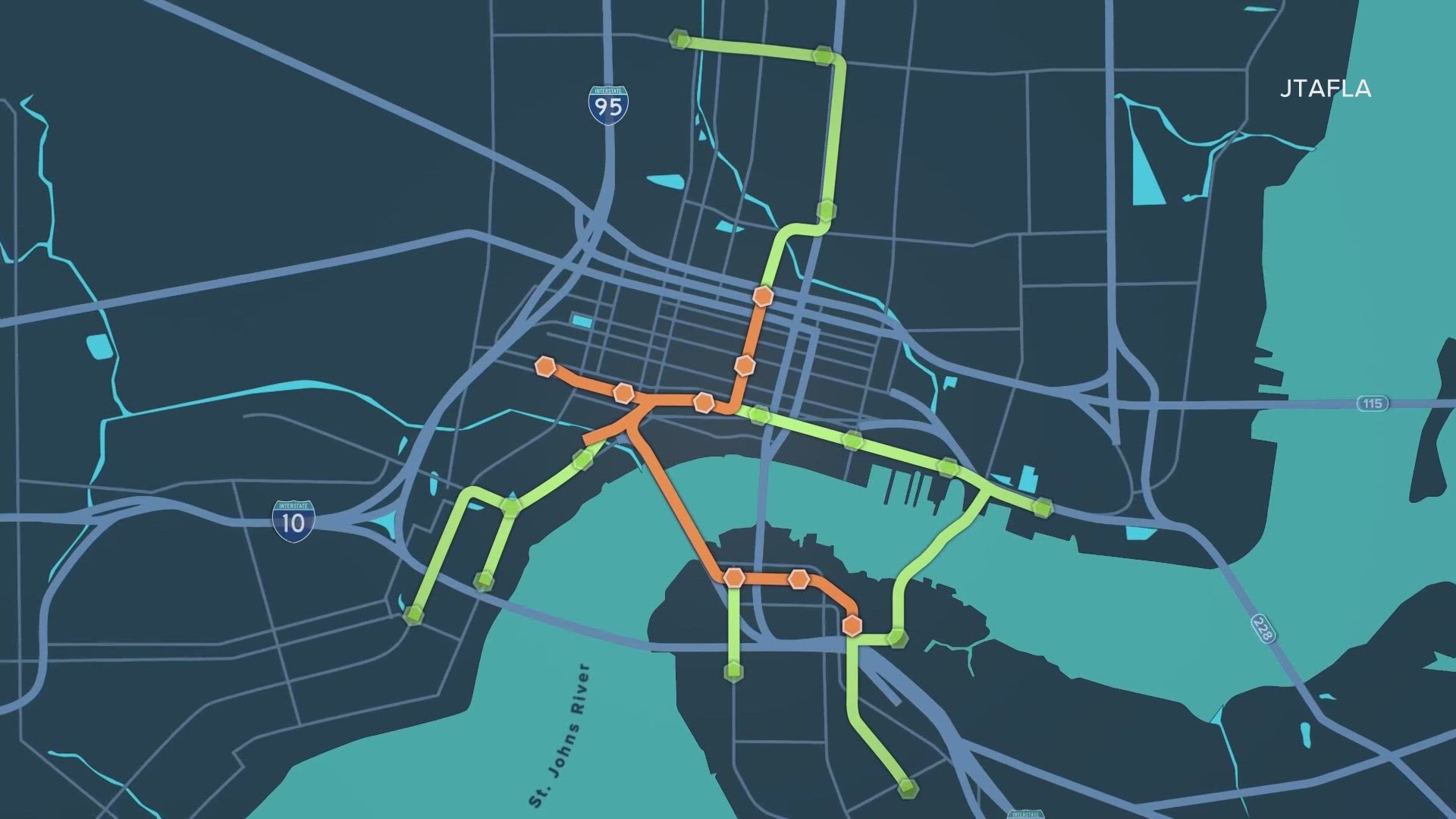JACKSONVILLE, Fla. — The Jacksonville Transit Authority is taking its first step towards reimagining the Skyway downtown. It won’t include the monorail you’re used to seeing. Where the Skyway goes won’t change, but what goes on it will.
The JTA board recently approved using up to $6.5 million to enter negotiations with a design firm to redesign the tracks for a vehicle JTA will eventually be deploying around the city.
JTA is discussing ways it can get electric-powered vehicles called autonomous vehicles to eventually replace the Skyway train.
It’s a part of a three-phase plan called the Ultimate Urban Circulator.
Phase I, the Bay Street Innovation Corridor, is currently under construction. Autonomous vehicles will run along Bay Street from Pearl Street to EverBank Stadium.


Phase II is the redesign of the Skyway where the autonomous vehicles will eventually replace the Skyway train.
Phase III is the eventual extension of service JTA says it will look at the effectiveness of the Bay Street corridor and apply it in different areas the Skyway doesn’t serve, such as San Marco, Brooklyn, Riverside and Springfield.
JTA said while keeping infrastructure costs in mind it believes autonomous vehicles are the most cost-efficient way to reach as many people as possible.
“To a degree, they're not wrong, that this is probably the cheapest type of mass transit you could do. But you know, typical Jacksonville fashion, you go with the cheapest method, you get the cheapest results. And that's really what I'm concerned about," Jacksonville City Councilmember Jimmy Peluso said.
Peluso isn't excited about autonomous vehicles which will eventually be driverless and range in speed from 18 to 35 mph driverless and 25 to 63 mph with a driver.
“I would like to see us look at light rail, I would like us to see a streetcar system. These are, these are methods that have been used in every major metropolitan area, it's a great way to move more people faster, they can go up to speeds of 50, 60, 70 miles an hour," Peluso said.
He's concerned project costs will balloon. Peluso said Phase I of the project costs around $65 million with a lot of it being federal money.
“I'm afraid it's going to be like the Skyway 2.0 system that we don't really fall in love with. And then we waste a lot of money on it, and then it just goes by the wayside," Peluso said.
JTA hopes to have autonomous vehicles going up and down Bay Street by 2025.

